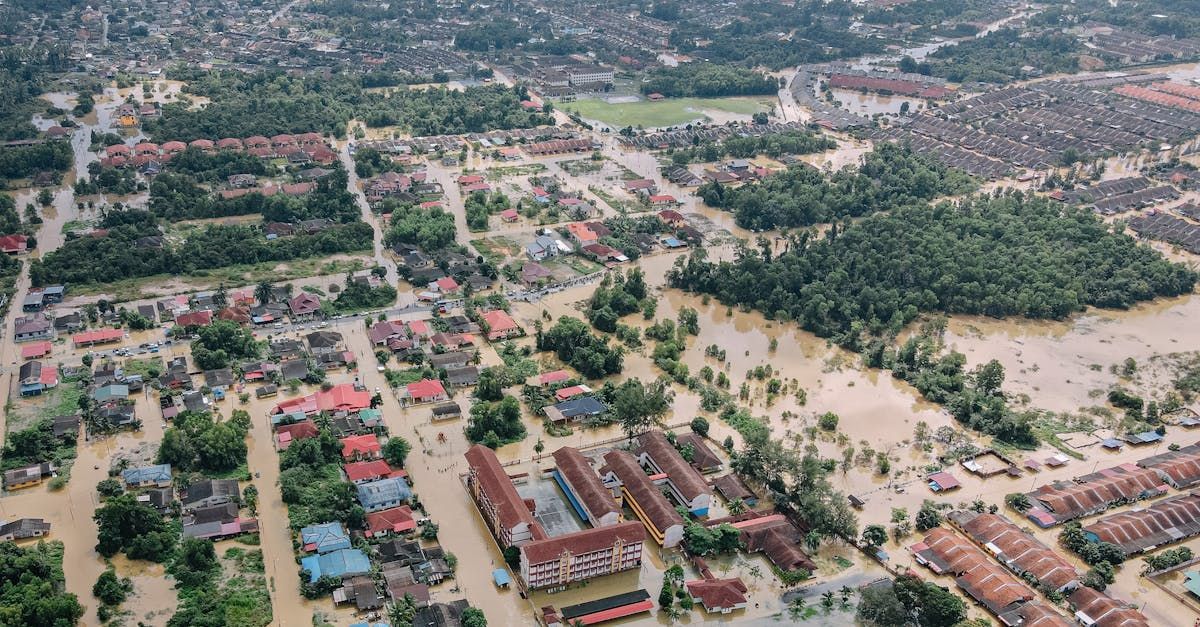Does home insurance cover flood?
Do you need a separate flood insurance policy?

Understanding Home Insurance: Why Flood Damage Isn't Covered and What You Can Do
Home insurance is essential for protecting your property and belongings from unexpected events like fire, theft, and certain types of natural disasters. However, many homeowners are surprised to learn that standard home insurance policies do not cover flood damage. This blog post will explore why flood damage is typically excluded from standard home insurance, the risks of being uninsured, and the steps you can take to protect your home from floods.
Why Standard Home Insurance Doesn't Cover Flood Damage
Standard home insurance policies generally exclude flood damage for several reasons:
1. High Risk and Cost: Floods are among the most common and costly natural disasters. Covering flood damage in standard home insurance policies would significantly increase premiums for all policyholders, even those living in low-risk areas.
2. Geographic Variability: The risk of flooding varies widely depending on location. Areas prone to floods would require much higher premiums to cover potential damages, making a one-size-fits-all approach impractical.
3. Federal and Private Solutions: In many countries, flood insurance is offered separately through government programs or private insurers. For example, in the United States, the National Flood Insurance Program (NFIP) provides flood insurance to homeowners in participating communities.
The Risks of Not Having Flood Insurance
Without flood insurance, homeowners are at significant financial risk if a flood occurs. Here are some potential consequences:
High Out-of-Pocket Costs: Repairing a home after a flood can be incredibly expensive, covering everything from structural repairs to replacing damaged belongings.
Limited Federal Aid: While government assistance may be available after a major disaster, it is often limited and insufficient to cover the full cost of repairs.
Loss of Property Value: Flood damage can decrease the value of your home, making it harder to sell in the future.
Steps to Protect Your Home from Flood Damage
To ensure your home is protected from flood damage, consider the following steps:
1. Purchase Flood Insurance
The most effective way to protect your home from flood damage is to purchase a separate flood insurance policy. Here are some tips for getting flood insurance:
Check Your Risk: Use online tools or consult with your local government to determine your flood risk and whether your area participates in the NFIP.
Compare Policies: Whether you choose the NFIP or a private insurer, compare policies to find the best coverage and price for your needs.
Understand Coverage Limits: Be aware of the policy limits, deductibles, and what is covered, such as building property and personal belongings.
2. Mitigate Flood Risk
Taking proactive measures to reduce flood risk can help protect your home and potentially lower insurance premiums:
Elevate Utilities: Raise electrical panels, heating systems, and other utilities above potential flood levels.
Install Flood Barriers: Consider installing flood barriers, such as sandbags or flood gates, to protect against rising water.
Improve Drainage: Ensure that gutters, downspouts, and drains are clear and functioning properly to redirect water away from your home.
Landscape Strategically: Use landscaping techniques to improve drainage and reduce runoff, such as planting native vegetation or installing rain gardens.
3. Stay Informed
Being informed about potential flood risks and emergency procedures can help you respond quickly in the event of a flood:
Monitor Weather Alerts: Keep an eye on weather forecasts and flood warnings for your area.
Develop an Emergency Plan: Create a plan for your family that includes evacuation routes and a checklist of essential items to take with you.
Document Your Belongings: Keep an inventory of your possessions, including photos and receipts, to facilitate insurance claims if needed.
Conclusion
Understanding that standard
home insurance does not cover flood damage is crucial for homeowners. By purchasing a separate
flood insurance policy and taking proactive steps to mitigate risk, you can protect your home and financial well-being from the devastating effects of a flood. Don't wait until it's too late—assess your flood risk and take action today to ensure your home is adequately protected.
Recent posts



